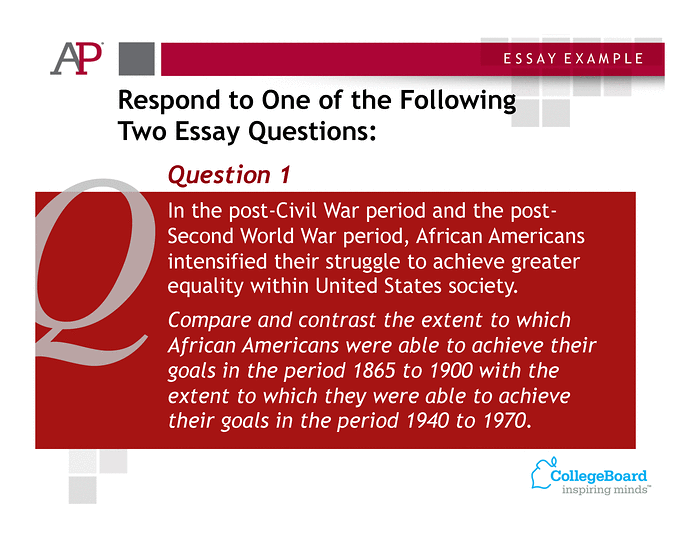Prepare to delve into the captivating world of American history with our comprehensive guide to APUSH Period 8 LEQ Prompts. These prompts will guide you through the major political, economic, social, and cultural changes that shaped the nation during this transformative era.
From the rise of industrialization to the expansion of American imperialism, this guide will provide you with the essential knowledge and insights to tackle any LEQ prompt with confidence. Get ready to explore the complexities of America’s past and develop a deeper understanding of its present.
Historical Developments
The era of APUSH Period 8 was a period of profound transformation in the United States, characterized by significant political, economic, and social changes. This era witnessed the emergence of the United States as a global power, the rise of industrialization and urbanization, and the expansion of democratic ideals.
Political Developments
Politically, Period 8 saw the consolidation of the two-party system, with the Democratic and Republican parties becoming the dominant forces in American politics. The era was also marked by the rise of progressivism, a movement that sought to address the social and economic problems created by industrialization.
Progressives pushed for reforms such as women’s suffrage, labor laws, and antitrust legislation.
Economic Developments
Economically, Period 8 was a time of rapid industrialization and urbanization. The growth of factories and the development of new technologies led to a dramatic increase in productivity and economic output. This period also saw the rise of big business and the emergence of the United States as a global economic power.
Social Developments
Socially, Period 8 was a time of great change and upheaval. The influx of immigrants from Europe and Asia transformed the American population and culture. The era also saw the rise of new social movements, such as the labor movement and the women’s suffrage movement.
These movements challenged traditional social norms and helped to shape the modern American identity.
Economic Transformation

Period 8 witnessed a remarkable economic transformation in the United States, characterized by rapid industrialization and economic growth. This transformation was driven by several factors and had profound social and political implications.
Factors Contributing to Economic Expansion and Industrialization
- Technological Advancements:Innovations such as the cotton gin, steam engine, and telegraph revolutionized production and transportation, enabling increased efficiency and productivity.
- Abundant Natural Resources:The United States possessed vast natural resources, including land, minerals, and forests, which fueled industrial development.
- Expanding Markets:A growing population and westward expansion created a vast domestic market for goods and services, stimulating economic activity.
- Government Policies:Government policies, such as protective tariffs and subsidies, promoted domestic industries and facilitated economic growth.
- Immigrant Labor:Immigrants provided a steady supply of cheap labor, which fueled industrial expansion.
Impact of Economic Changes on Social and Political Life
- Urbanization:Industrialization led to the growth of cities, as workers flocked to urban areas seeking jobs in factories.
- Social Inequality:The rapid economic growth created a gap between the wealthy industrialists and the working class, leading to social tensions.
- Labor Movements:The rise of industrial capitalism led to the emergence of labor movements, as workers organized to demand better working conditions and wages.
- Political Polarization:Economic changes contributed to political polarization, as different social groups advocated for policies that favored their interests.
Social and Cultural Trends
The advent of the 20th century witnessed a transformative era in American society and culture. The nation underwent rapid urbanization, industrialization, and immigration, which profoundly reshaped the social fabric and cultural landscape of the United States.
To get the ball rolling on your APUSH Period 8 LEQ prompts, it’s worth brushing up on the basics. Check out this quiz on verbs and adverbs to refresh your grammar knowledge. Then, you’ll be all set to tackle those LEQ prompts with confidence!
The Rise of New Social Movements and Ideologies
The early 20th century saw the emergence of a diverse array of social movements that challenged traditional norms and advocated for social change. These movements included the Progressive Era, the women’s suffrage movement, the labor movement, and the civil rights movement.
These movements fought for the expansion of democracy, social justice, and economic equality.Ideologically, the Progressive Era was marked by a belief in the power of government to address social problems. The women’s suffrage movement advocated for the right of women to vote, while the labor movement fought for the rights of workers.
The civil rights movement sought to end racial segregation and discrimination.
The Impact on American Identity and Values
The social and cultural changes of the early 20th century had a profound impact on American identity and values. The nation became more diverse, urbanized, and industrialized. These changes led to a shift in values, as Americans increasingly embraced individualism, consumerism, and a belief in the power of technology.The
rise of new social movements also contributed to a redefinition of American identity. These movements challenged traditional notions of gender, race, and class, and helped to create a more inclusive and egalitarian society.
Foreign Policy and Imperialism: Apush Period 8 Leq Prompts

The United States emerged from the Spanish-American War as a global power, marking the beginning of a period of expansionism and imperialism that would shape the nation’s foreign policy for decades to come.
Causes of American Expansionism and Imperialism, Apush period 8 leq prompts
- Economic interests: The desire for new markets and resources drove American expansionism, particularly in Latin America and Asia.
- Nationalism: A sense of national pride and destiny fueled the belief that the United States had a mission to spread its values and influence around the world.
- Geopolitical considerations: The acquisition of territories in the Caribbean and Pacific provided strategic advantages for military and economic purposes.
Consequences of American Expansionism and Imperialism
- Territorial expansion: The United States acquired control over Puerto Rico, Guam, the Philippines, and Hawaii, among other territories.
- Economic benefits: American businesses gained access to new markets and resources, leading to increased economic growth.
- Social and cultural changes: Imperialism brought American culture and values into contact with different societies, leading to both assimilation and resistance.
- Political tensions: American expansionism and imperialism created tensions with other world powers, such as Great Britain and Japan.
Impact of Foreign Policy on Domestic Politics and Society
- Political divisions: Foreign policy debates divided American society, with some supporting expansionism and others opposing it.
- Social activism: Anti-imperialist movements emerged, advocating for the rights of indigenous peoples and the end of American colonialism.
- Military spending: The pursuit of imperial ambitions led to increased military spending and the development of a permanent standing army.
Political Developments
The early 20th century witnessed significant political shifts in the United States, marked by the rise of new political parties and ideologies that reshaped American governance and institutions.
Rise of New Political Parties and Ideologies
The Progressive Era saw the emergence of the Progressive Party, a reform-minded group advocating for greater government regulation of businesses and social welfare programs. Meanwhile, the Socialist Party gained traction among labor unions and urban working-class voters, promoting a vision of economic equality and government ownership of industries.
Impact on American Governance and Institutions
The rise of these new parties challenged the traditional two-party system and led to a shift in the political landscape. Progressive reforms, such as the direct primary system and the Federal Reserve, strengthened democratic institutions and expanded government’s role in regulating the economy.
The Socialist Party’s influence was more limited but played a crucial role in raising awareness about labor issues and social inequality, influencing the development of labor laws and welfare programs.
Technological Advancements

The late 19th and early 20th centuries witnessed a surge of technological advancements that transformed American society and economy. These innovations had a profound impact on various aspects of life, from transportation and communication to manufacturing and warfare.
Transportation
* The invention of the automobile revolutionized personal mobility, creating a demand for new roads and fueling the growth of suburbs.
- The development of railroads expanded transportation networks, connecting distant regions and facilitating the movement of goods and people.
- The Wright brothers’ successful flight in 1903 marked the beginning of aviation, opening up new possibilities for transportation and exploration.
Communication
* The invention of the telephone by Alexander Graham Bell in 1876 enabled instant communication over long distances, transforming business and social interactions.
- The development of the telegraph allowed for rapid transmission of messages across the country and beyond, facilitating news dissemination and government coordination.
- The invention of the radio by Guglielmo Marconi in 1895 introduced wireless communication, expanding the reach of information and entertainment.
Manufacturing
* The adoption of mass production techniques, pioneered by Henry Ford in the early 20th century, revolutionized manufacturing, increasing productivity and reducing costs.
- The development of new materials, such as steel and concrete, enabled the construction of skyscrapers and other large structures, transforming urban landscapes.
- The invention of the internal combustion engine led to the development of automobiles and airplanes, creating new industries and transportation options.
Warfare
* The development of machine guns and artillery transformed warfare, making it more destructive and deadly.
- The invention of the submarine and the airplane introduced new dimensions to combat, expanding the scope of military operations.
- The use of poison gas in World War I highlighted the potential for technology to be used for destructive purposes.
These technological advancements had a profound impact on American society and economy. They accelerated urbanization, facilitated the growth of new industries, and transformed the way people lived and worked. They also had a significant impact on the course of history, shaping major events such as the Industrial Revolution, the World Wars, and the rise of the United States as a global power.
Key Questions Answered
What is the significance of APUSH Period 8?
APUSH Period 8 encompasses a crucial era in American history, marked by rapid industrialization, westward expansion, and the rise of the United States as a global power.
How can I prepare for APUSH Period 8 LEQ prompts?
To prepare effectively, familiarize yourself with the key events, turning points, and historical figures of the period. Practice writing LEQ essays using specific prompts and seek feedback to refine your skills.
What are some common themes addressed in APUSH Period 8 LEQ prompts?
Common themes include the impact of industrialization, the expansion of American democracy, the rise of social movements, and the challenges of foreign policy.